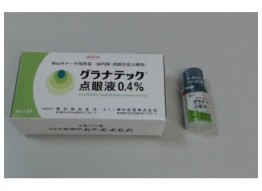Tenormin tablets 25 mg for hypertension and heart diseases
What are Tenormin 25 mg tablets for hypertension and heart disease?
Atenolol serves as the principal component within Tenormin tablets, contributing to its therapeutic effects. The mechanism of action involves the inhibition of beta-1 receptors located within the heart. By doing so, the medication achieves a reduction in blood pressure and a deceleration of heart rate. This physiological response finds utility in various medical conditions.
Tenormin tablets find application in both the prevention of anginal attacks and the management of tachyarrhythmia, hypertension, angina, and long QT syndrome. The medication's proficiency in affecting beta-1 receptors in the heart enables its versatility in treating these conditions, where a regulation of heart rate and blood pressure is crucial.
Notably, atenolol exhibits a distinctive pharmacokinetic profile. It is predominantly eliminated through the renal route in an unchanged form, highlighting the renal system's role in its excretion. Furthermore, atenolol demonstrates limited permeability through the blood-brain barrier, indicating a reduced propensity to affect central nervous system functions.
Tenormin tablets offer a favorable safety profile, particularly for patients with compromised liver function. This attribute stems from the minimal hepatic metabolism associated with the medication. Consequently, individuals with liver dysfunction can benefit from the therapeutic effects of Tenormin without heightened concerns regarding significant hepatic involvement.
Active principles: atenolol
Amount: 100 tablets
Maker: AstraZeneca K. K., Osaka, Japan
Indications:
- hypertension,
- angina,
- long QT syndrome,
- acute myocardial infarction,
- supraventricular tachycardia,
- ventricular tachycardia.
How to take
Adults should take 2 tablets (50 mg of the active principle) at a time, once a day. Your doctor may adjust the dosage according to your age and symptoms. However, the daily maximum dosage of 4 tablets (100 mg), once a day, should not be exceeded.
Contraindications: do not use for pregnant or breastfeeding women. Do not use for patients with diabetic ketoacidosis or metabolic acidosis, bradycardia, atrioventricular block, sinoatrial block, sick sinus syndrome, cardiogenic shock, right heart failure caused by pulmonary hypertension, congestive heart failure, hypotension, peripheral circulatory disorder, untreated phaeochromocytoma..
Important information
Breastfeeding is strictly prohibited while taking this medicine.
Patient's blood sugar levels should be monitored while taking this medicine
As this medicine may cause dizziness, patient should avoid driving a car, operating dangerous machinery or working at heights.
If an allergic reaction occurs, patient needs to stop using the medicine and consult with their doctor. If patient is taking any other medication or treatment, they should consult with their doctor in advance.



